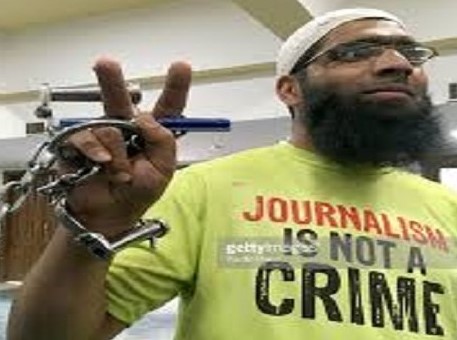TCN News
The Committee to Protect Journalists (CPJ) together with over 400 civil society activists and organizations has written to Prime Minister Narendra Modi to immediately release Kashmiri journalist Aasif Sultan, who has been imprisoned for two years as of August 27.
The signatories of this statement include renowned writers, journalists, academics, press freedom advocates, filmmakers and civil society members from world over. The statement has recalled that Kashmiri journalists Aasif Sultan who covers politics and human rights for the Kashmir Narrator, has been unjustly detained since August 27, 2018, under the Unlawful Activities Prevention Act, charging him for his alleged complicity in “harboring known terrorists.” In this regard, CPJ has pointed to Sultan’s work in interviewing alleged militants or having sources critical of the government “as within the scope of a journalist’s job” that “does not implicate them in any crime.” It has resonated that events in Kashmir are of public interest, and covering them is a public service, not a criminal act.
Sultan’s trial had begun in June 2019, but has been “moving slowly and he has repeatedly been denied bail.” CPJ reflects that Police have reportedly interrogated him about his writing and asked him to reveal his sources but “journalists should not face retaliation for their reporting.” The letter highlights recent deaths of journalists who contracted COVID-19 in government custody around the world, and the spread of COVID-19 among inmates in jails in Jammu and Kashmir, stating that the threat to Sultan’s well-being is significant. On behalf of the 400+ human rights advocates, CPJ has called on the government “to follow the Supreme Court’s guidance issued on March 23 to release prisoners on parole due to the COVID-19 pandemic, and grant Aasif Sultan immediate and unconditional release.”
Addressing other Kashmiri journalists who have been harassed in the past one year for their coverage of communication lockdown in the wake of abrogation of Article 370, CPJ stated that “press freedom is a vital tenet of democracy and a proud part of India’s history.” It has further demanded the government “to recognize and uphold India’s commitment to press freedom under Article 19 of its constitution.”


